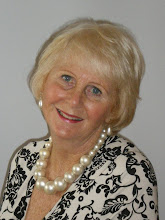
David worked at the Royal Courts of Justice in the Strand, London for a number of years. This quiet "legal" backwater, which includes the four Inns of Court with their wonderful gardens, still has many properties and locations where Charles Dickens either lived, or worked or which he used as settings in his novels. David offers four illustrated talks about various aspects of Dickens' life which reveal much about his complicated character. Novelist, social reformer, family man, actor, comic genius and secret lover - there's more to Dickens than was generally known by his adoring fans around the Victorian world.
TALK 1 - DICKENS AND THE LAW
An illustrated tour around the "legal" area of London, including the Royal Courts, Grays Inn, Lincolns Inn and Middle and Inner Temples with their lovely gardens and churches. The slides show the properties in which Dickens lived and worked and the many locations he used in his novels, with relevant short quotations. A lighthearted and lively look at this facinating area of London and the interesting things that still go on there 150 years after Dickens' death.
TALK 2 - DICKENS AND WOMEN
After his death Dickens' daughter Kate said "my father never really understood women". This not-too-serious talk looks at the factors which shaped Dickens' relationships with women including his mother, sister, youthful girl friends, wife, daughters and his secret lover and we see photos and portraits of them all.
TALK 3 - DICKENS AND CHRISTMAS
Dickens has been described as the inventor of the modern Christmas. Whilst "A Christmas Carol", with the unforgettable Scrooge and Tiny Tim, is his best known Christmas work he wrote many other stories and articles on the subject. This talk looks at the reasons for his keen interest in celebrating Christmas and the new year and includes readings of both well and lesser known extracts. Its an ideal talk for the weeks before Christmas, perhaps with sherry and mince pies.
TALK 4 - DICKENS AND SOCIAL REFORM
During his time as a Parliamentary reporter Dickens became aware of the many areas of Victorian life in which there was a need for urgent improvement. Education and health care was beyond the reach of the poor, many of whom, including young children, were forced to work long hours down coal mines and in other unsafe places. Dickens used his novels and the newspapers he edited to help speed changes and improvements in the law affecting employment, education, prisons, the treatment of "fallen women" and much more. An interesting talk emphasising how much we owe to Dickens and his like-minded friends.


No comments:
Post a Comment